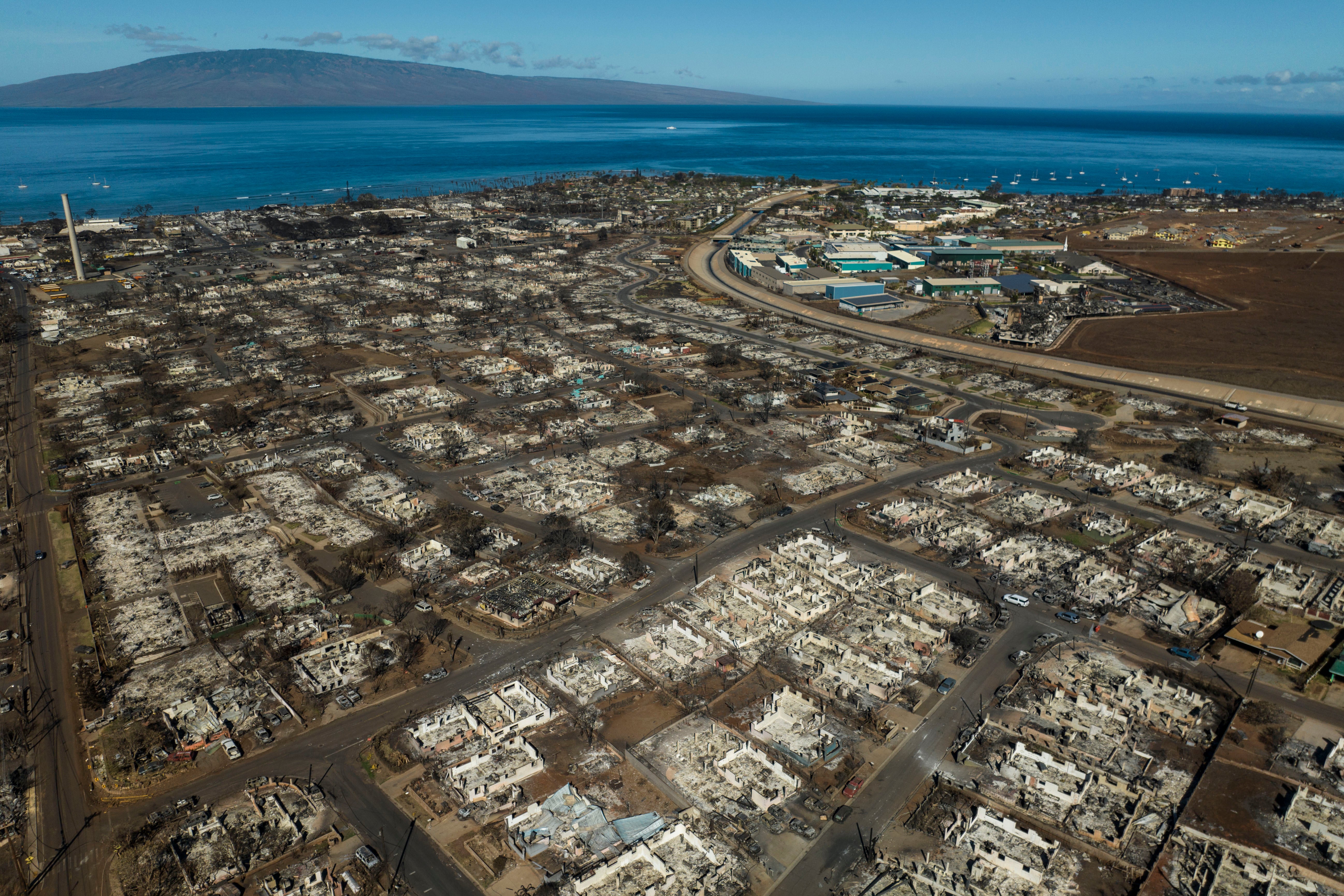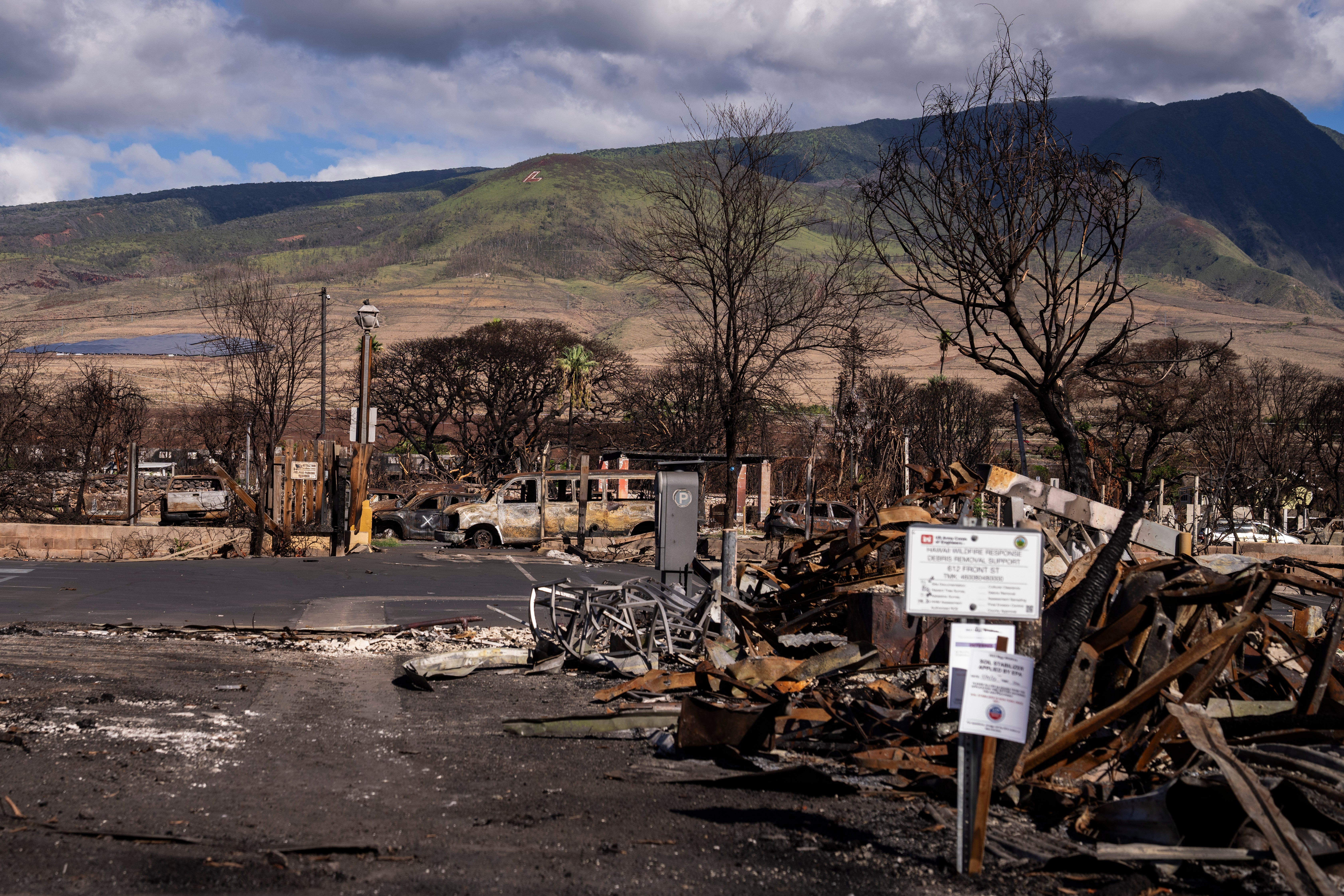Hawaii proposes $25 climate tax to help recover from Maui wildfires
Months after wildfires devestated Maui, Hawaii lawmakers are proposing a ‘climate tax’ on tourist to preserve their landscapes
Your support helps us to tell the story
From reproductive rights to climate change to Big Tech, The Independent is on the ground when the story is developing. Whether it's investigating the financials of Elon Musk's pro-Trump PAC or producing our latest documentary, 'The A Word', which shines a light on the American women fighting for reproductive rights, we know how important it is to parse out the facts from the messaging.
At such a critical moment in US history, we need reporters on the ground. Your donation allows us to keep sending journalists to speak to both sides of the story.
The Independent is trusted by Americans across the entire political spectrum. And unlike many other quality news outlets, we choose not to lock Americans out of our reporting and analysis with paywalls. We believe quality journalism should be available to everyone, paid for by those who can afford it.
Your support makes all the difference.A bill has been proposed to impose a $25 climate tax on tourists who are jetting to visit Hawaii to “minimise the impacts of and respond to climate crises.”
The Aloha State continues to recover from the rampant wildfires that devastated Lahaina in Maui, which left at least 100 dead and racked up to $6bn in damages.
In one version of the bill listed on the Hawaii legislature website, the bill said the wildfire tragedies are “a wake-up call for all Hawaii residents, businesses, and public agencies to significantly increase efforts to prevent climate crises and limit the damage when crises do occur.”
The Maui wildfires in August 2023 are considered the deadliest blaze in the United States in more than 100 years.
Lawmakers are now looking to protect their natural habitats and resources from climate change with an extra fee from the rush of tourists they receive each year.
“It’s a very small price to pay to preserve paradise,” Hawaii Governor Josh Green said to The Wall Street Journal.
Last year, 9.5 million people visited Hawaii and with the recent wildfire disaster, concerns about the state’s environment have become more prevalent.
Mr Green said in a State of the State speech in January that he estimates that with this function in place, a revenue of $68m would be generated annually from the tax.

Wildfire and flood prevention, coral reef protection, green infrastructure, coastal management, emergency drinking water supplies, and provisions for emergency electricity are all elements that would be covered by the tax, according to the bill.
The bill added that the money would also protect lives, homes, businesses and other tourist sites, among others.
"This modest fee is far less than the resort fees or other taxes visitors have paid for years," Mr Green said during the speech.
"I believe this is not too much to ask of visitors to our islands. I’m open to any other proposal that would achieve the same goals... but we must do something now."
Hawaii already considered a similar scheme last year, proposing a $50 ‘green fee,’ but it did not succeed.
"I’ll renew our efforts to pass a climate impact fee to help us stare down the terrible impacts of climate change," Mr Green added.

“Last year, this proposal stalled in committee — but imagine how helpful that program would have been to address the disaster on Maui. We need to do better this year.”
Hawaii is not the first destination to address the idea of taxing tourists to keep their landscape safe, as many other countries already have systems in place.
Greece recently increased their already existing hotel tax that is put in place to confront natural disasters caused by climate change, according to Lonely Planet.
Similarly, Iceland is introducing a tourist tax this year to help protect its climate. The country has a goal to become carbon-neutral before 2040, and with increased travel to the country, tax is being put in place to hopefully alleviate the pressure, Bloomberg reported.
“Tourism has really grown exponentially in Iceland in the last decade and that obviously is not just creating effects on the climate,” Iceland Prime Minister Katrin Jakobsdottir told the outlet in September. “Also most of our guests visit our unspoiled nature and obviously that creates a pressure.”
And it is not just tourists on-land that are being considered; Denmark is introducing a ‘passenger tax’ for flights to their country, which will set back jet-setters roughly $56 for long-distance flights, $35 for medium distance and $9 for shorter flights within Europe - a plan which is proposed for 2025 and to be effective by 2030, Lonely Planet said.
The money is set to go towards the use of 100 per cent sustainable fuels on domestic flights by 2030.

Join our commenting forum
Join thought-provoking conversations, follow other Independent readers and see their replies
Comments